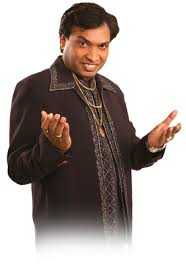| Scope and Work
Performance Opportunities: Stand-up comedians typically perform in various venues, including comedy clubs, theaters, corporate events, colleges, festivals, and TV shows. As they gain popularity, they may get booked for larger events and national/international tours.
Writing and Creating Material: Comedians spend time writing and refining their jokes and comedic routines. This creative process is ongoing as they need to keep their material fresh and relevant.
Promotional Activities: Especially for emerging comedians, self-promotion is essential. They may need to use social media, podcasts, YouTube, and other platforms to reach a wider audience and showcase their talent.
Earnings:
Starting Out: Beginners may struggle financially, especially if they have not gained a significant following. In the early stages, many comedians perform for little or no pay at open mics and small venues to gain exposure.
Middle-Tier Comedians: As comedians gain experience and a solid reputation, they can earn more from paid gigs, comedy club appearances, and corporate events. Middle-tier comedians can make a modest living, but it might not be consistent.
Top Comedians: Highly successful comedians who have reached celebrity status can earn substantial incomes. They can command higher fees for performances, secure lucrative deals for TV specials, movies, endorsements, and merchandise sales.
Factors Influencing Earnings:
Popularity and Fan Base: A large and dedicated fan base can significantly impact a comedian's earnings as they attract bigger audiences and increase demand for their shows.
Market and Location: Comedians in major entertainment hubs like Los Angeles or New York City might have more opportunities but also face more competition. Smaller markets may have fewer opportunities but lower living costs.
TV and Streaming: Landing appearances on TV shows or streaming platforms can provide comedians with exposure and potential financial benefits.
Merchandise and Endorsements: Selling merchandise (e.g., T-shirts, CDs, DVDs) and securing endorsement deals can add to a comedian's income.
Writing and Acting: Some comedians diversify their income by writing for other comedians or working in film and television as actors or writers.
It's important to note that stand-up comedy is a highly competitive and challenging industry, and success is not guaranteed. Many comedians face years of hard work and dedication before achieving significant recognition and financial stability. Building a career in comedy requires persistence, continuous improvement, and a bit of luck.
Lastly, mentally prepare yourself for a range of audience reactions, including the possibility of silence or lackluster responses. Be ready to skip jokes or move to the next one quickly if needed. But when you have truly unique material, you're bound to leave mouths open in laughter. So don't wait any longer – pick up that microphone and start your stand-up comedy journey!
|
